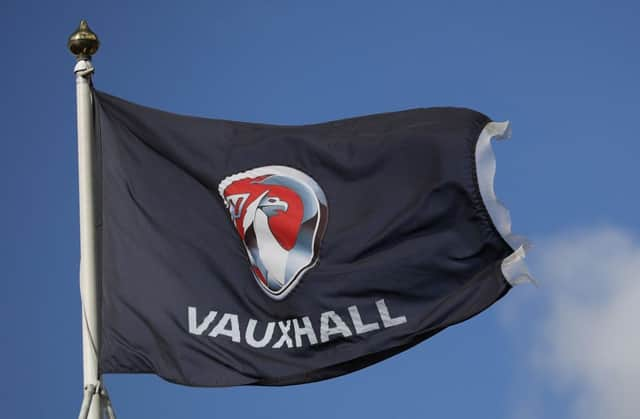Leader comment: Car plants in clear and present danger


And if that is a general worry about the future direction of global business then this deal, which sees the European business being sold to PSA, the owner of Peugeot and Citroen, represents a clear and direct threat to the company’s two plants in the UK at Ellesmere Port and Luton.
The United Kingdom car manufacturing industry has done well to make itself one of the most efficient and productive in the world. But political decisions are going to have a significant impact on that beyond the control of the managers or the workers.
Advertisement
Hide AdAdvertisement
Hide AdThe head of PSA, Carlos Tavares, sought to calm fears among the 4,500 people employed in its plants in the UK, and has said that he will respect the commitments currently given to the workforces, and that means the Astra will continue to be produced at Ellesmere Port until 2021 and the Vivaro van will be built in Luton until 2025.
But such is the high investment and long-term nature of modern mass car building the company will have to make a decision next year on whether to build a new model at Ellesmere Port.
The move to buy GM Europe will mean PSA have 24 factories in Europe. PSA says it expects to make savings of £1.47 billion per year by 2026, in a bid to increase profits. That will certainly mean some plants will have to close, and hard-headed businessmen will look very closely at each plant’s productivity and profitability.
At present about 60 per cent of the parts needed to build Vivaro vans come from Europe to this country, and that figure rises to 75 per cent for the building of the Astra at Ellesmere Port. After Brexit those car parts will be crossing a border.
And currently around 80 per cent of the Vauxhall models built in this country are sold in Europe. After Brexit those cars will be crossing a border in to the EU and it may well be that the EU imposes a tariff on those cars to protect the cars made within its borders.
What PSA will have to decide, and soon, is what advantage may lie in having all of its plants within the EU borders, and what advantages would there be to having two outside them. One has to think that the UK plants would have to be extraordinarily more productive and profitable to get a decision in their favour when the exact size of any downside will not be known. And in the long-view taking car industry, that has to be a worry.
There is no doubt that the governments of France and Germany will be discussing with PSA what they can do to keep car plants, and no doubt Theresa May will be too, and looking for safeguards for the industry as part of the Brexit negotiations. But it is easy to see who holds the stronger hand going in to those discussions.